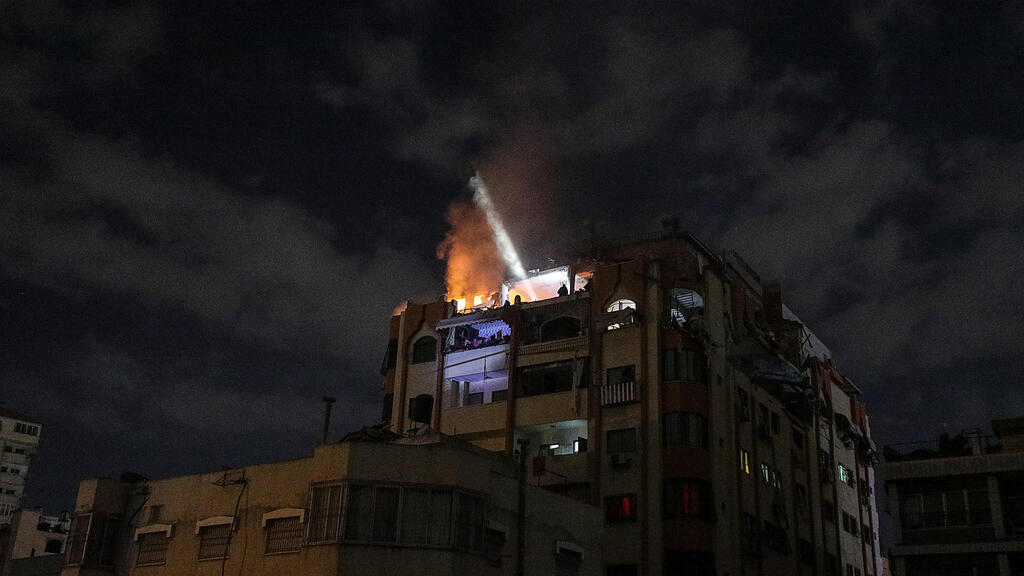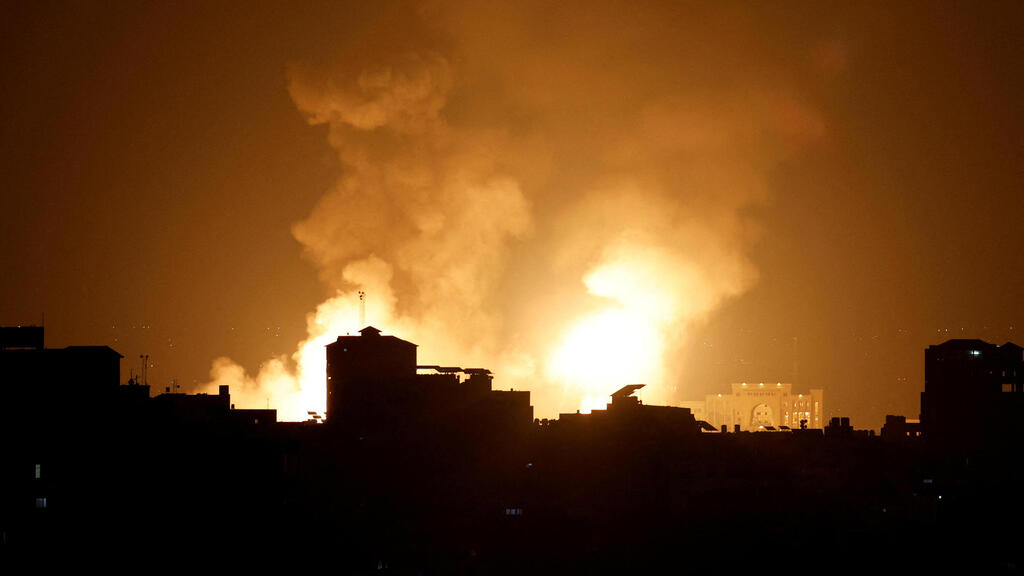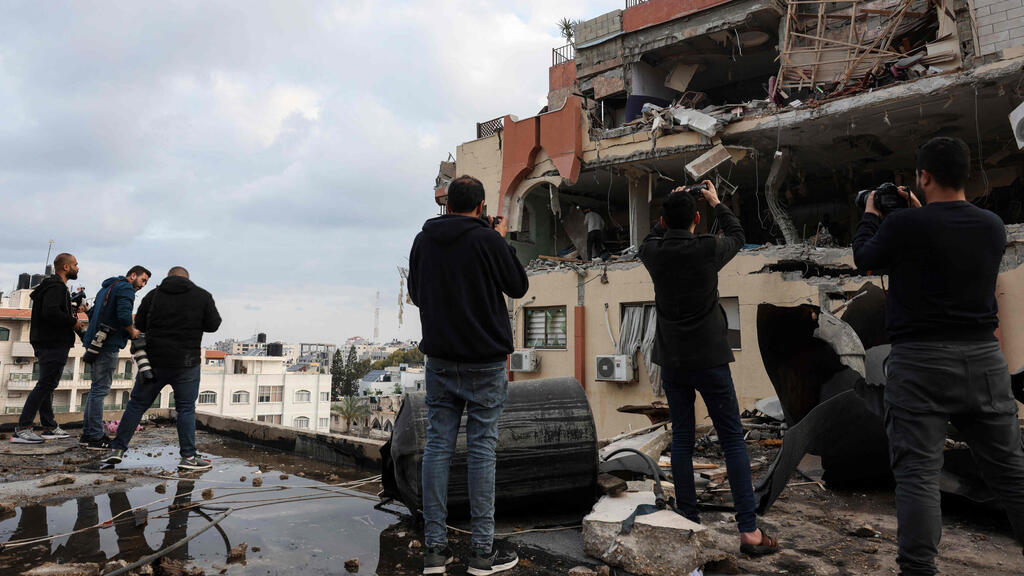Getting your Trinity Audio player ready...
Israel braces for rocket fire after Gaza strikes
The Palestinian Islamic Jihad terror group is the second largest in the Gaza Strip but is still small in size and poses an intelligence challenge to Israeli security forces. That is why a targeted attack on its commanders was a month in the making.
5 View gallery
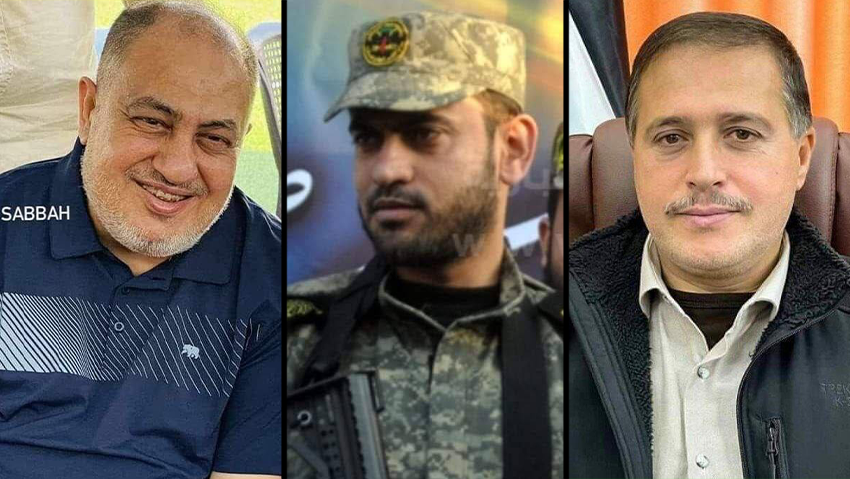

Khalil Bahtini, Jehad Ghanam, Tareq Izzeldeen PIJ commanders assassinated in targeted IDF killing on Tuesday
More stories:
Unlike the Gaza-ruling Hamas group, PIJ has a centralized leadership that deals only with military matters with the direct guidance and financial assistance of Iran and acts as an underground organization.
That makes the Tuesday operation all the more difficult after its three senior leaders including the commander of operations in Gaza and his coordinator of activities in the West Bank, were rarely exposed.
5 View gallery
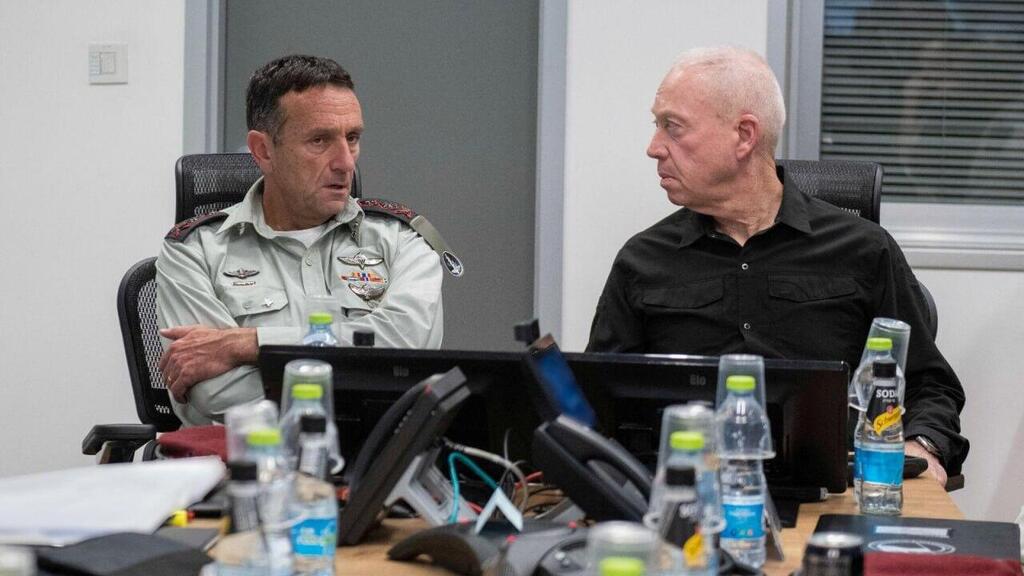

Chief of Staff Herzi Halevi and Defense Minister Yoav Gallant during the IDF strike on Gaza
(Photo: Defense Ministry )
As in a previous military assassination of the PIJ's northern commander Baha Abu al-Atta in 2019, no too the IDF identified and assassinated the Islamist Faction's leaders who control the group's operations beyond the Strip.
The operation served three purposes. One was deterrence, the second – was the prevention of further terror strikes mainly on the West Bank, and the third was revenge.
Since careful advance planning was necessary in order to achieve operational goals and appease the politicians denouncing the government's response to earlier rocket fire, the military had to wait for the opportune moment when senior members of the Gaza factions were no longer hiding from the IDF in underground bunkers.
This explains why security officials were not quick to respond to National Security Minister Itamar Ben-Gvir's demand for action. Prime Minister Benjamin Netanyahu and Defense Minister Yoav Gallant showed that restraint and patience pay and the results could be achieved when opportunity strikes.
The international response is not expected to pose a problem and it is likely that the administration of U.S. President Joe Biden would see Israel's right to strike at the leadership of the PIJ just as the U.S. had the right and the responsibility to take out Bin Laden and senior IS leaders in Syria.
The IDF believes that the PIJ would attempt to launch rockets at Israel's southern cities – including Ashdod and Be'er Sheva – in response, so special measures were put into effect. Residents of the south who do not evacuate themselves to safer areas further north were instructed to remain near shelters.
A few days of fighting are expected but the question is how Hamas would react and if it would join the fighting or not, when the PIJ is the specific target of the Israelis.
Hamas encouraged the smaller faction to launch rockets after one of its members died in prison last week after an 86-day hunger strike, or clashes on Temple Mount.
The two groups even published a joint statement then, although Hamas fired just a few anti-aircraft rockets in order to activate Israel's missile defense systems.
The Gaza rulers behaved in accordance with their responsibility to residents of the Strip and refrained from joining the fight.
Hamas is opposed to the PIJ's militant ideology that is directed by Iran and by its Syrian and Lebanese-based leader Ziyad al-Nakhalah, but It cannot control the PIJ which is in possession of thousands of rockets and is sure to avenge the Tuesday killing of its commanders and their families, including children.
The military, it appears, is preparing for a battle that could last days and has approved the call-up of hundreds of reserve troops, mostly for air defenses and operational headquarters of the air force and intelligence units.
Similar operations as the one on Tuesday brought about a period of calm along the border. Whether that would be the case this time, will depend on the choices made by Hamas





